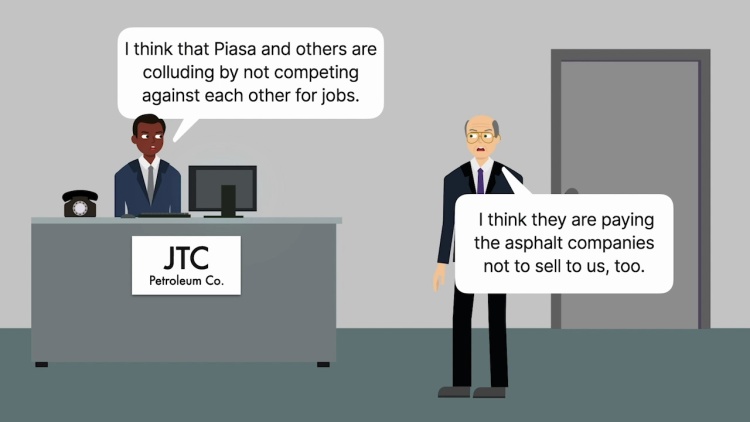JTC Petroleum Co. v. Piasa Motor Fuels, Inc.
United States Court of Appeals for the Seventh Circuit
190 F.3d 775 (1999)

- Written by Sean Carroll, JD
Facts
JTC Petroleum Company (JTC) (plaintiff) was in the business of paving roads. JTC brought an antitrust suit against other pavers (pavers) and producers of asphalt (producers) (both defendants). JTC alleged that the pavers colluded by declining to compete against each other when local governments put paving jobs out for bid. JTC also claimed that the pavers paid the producers to not sell asphalt to JTC or any other company that refused to join the cartel. To support this claim, JTC presented evidence that the pavers paid significantly higher prices to the producers than pavers did in a nearby region with similar operating costs. JTC theorized that these higher prices included compensation to the producers for their agreement to not sell to JTC. Further, JTC claimed that the producers’ excuses for not selling to JTC were often pretextual and insubstantial. For example, one producer used JTC’s credit history as an excuse not to sell asphalt to the company, but then still declined to sell to JTC when JTC offered to pay cash. Much of JTC’s evidence was contested by the defendants. JTC settled out of court with the producers and three of the six pavers. The district court granted the remaining defendants summary judgment. JTC appealed.
Rule of Law
Issue
Holding and Reasoning (Posner, C.J.)
What to do next…
Here's why 899,000 law students have relied on our case briefs:
- Written by law professors and practitioners, not other law students. 47,000 briefs, keyed to 994 casebooks. Top-notch customer support.
- The right amount of information, includes the facts, issues, rule of law, holding and reasoning, and any concurrences and dissents.
- Access in your classes, works on your mobile and tablet. Massive library of related video lessons and high quality multiple-choice questions.
- Easy to use, uniform format for every case brief. Written in plain English, not in legalese. Our briefs summarize and simplify; they don’t just repeat the court’s language.





